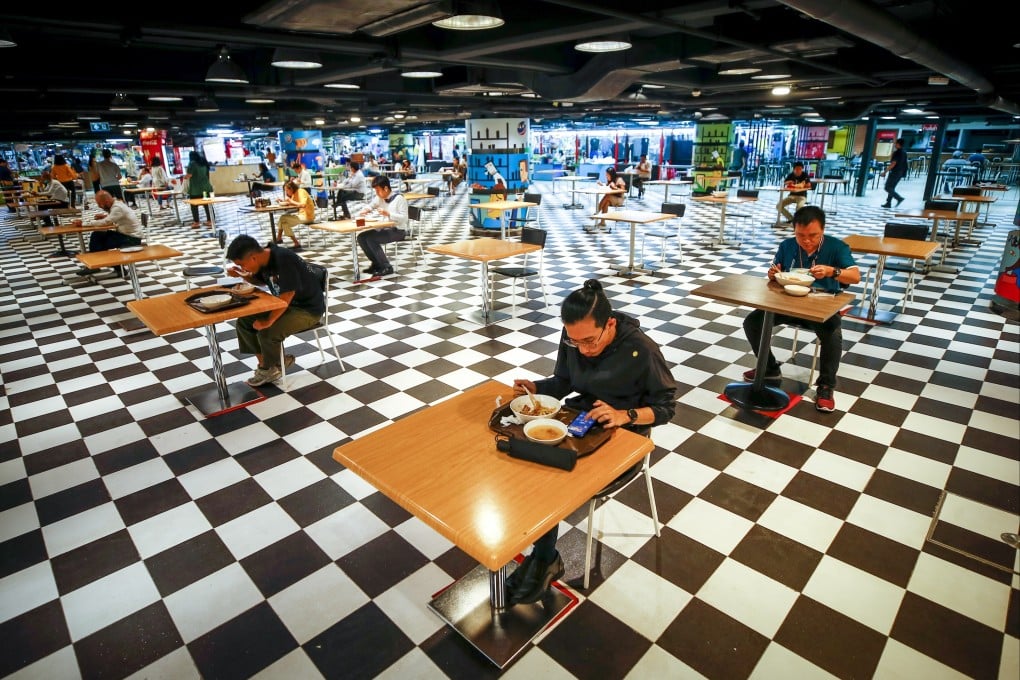Advertisement
Coronavirus pandemic in Thailand leaves Bangkok restaurants in turmoil
- Amid a third wave of infections, eateries have been forced to close, suspend or limit operations, while those that hobble on are banned from selling alcohol, which usually accounts for up to 55 per cent of takings
- With 50,000 restaurants thought to have closed and the same again on the brink, owners say the high-end Michelin-starred venues may be fine, but a famously eclectic scene risks becoming a little less eclectic
Reading Time:3 minutes
Why you can trust SCMP
2

Bangkok’s celebrated food scene is in turmoil as the kingdom struggles to control the coronavirus pandemic, leaving restaurateurs wheezing under the weight of overheads without customers and raging at a government that has imposed an alcohol ban but failed to support staff wages.
In a city where a tangy, spicy bite is never more than a few metres away - from some of the world’s best street food to Michelin-starred restaurants - eateries have been forced to close, suspend or limit operations since a third wave of infections began in April.
Other businesses have hobbled on without alcohol sales - responsible for 35 to 55 per cent of takings - or resorted to selling booze illegally to entice customers to their tables, despite the risk of hefty fines by a government contending with the most severe outbreak of the virus yet.
Advertisement
So far more than 1,400 Thais have been killed by the virus.
Authorities say they will consider extending opening hours to 11pm and lifting the alcohol ban in coming weeks.

But restaurant owners say it is too late and have a long list of complaints: no provision of tests or vaccines for customer-facing staff, an absence of wage relief, shortened opening hours, the booze ban and bungled communication about when they will be allowed to operate as normal.
Advertisement
Select Voice
Select Speed
1.00x